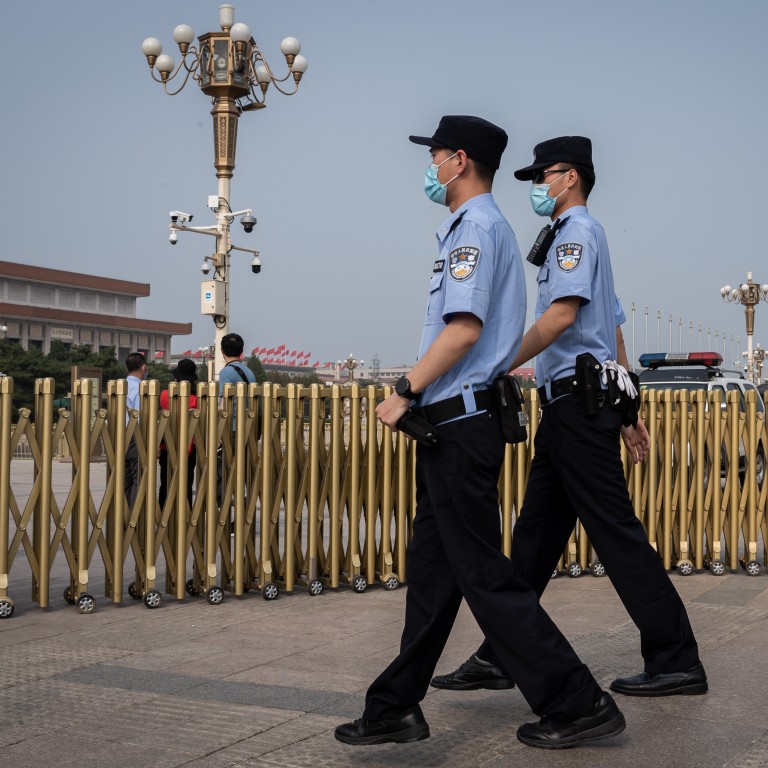
China plans hi-tech supervision of police officers and judges as party tightens grip on domestic security
- A new automated system using big data technology will be used to identify procedural violations in investigations, trials and enforcement work
- Machine learning and computer analysis will be used to check for deviations or abnormalities in verdicts and sentences handed down by judges
Central Political and Legal Affairs Commission secretary Guo Shengkun told a meeting this week that insufficient checks and balances, lax enforcement of the rules, injustices and corruption were among the “most acute shortcomings” of the security system, Xinhua reported late on Thursday.

00:59
China’s facial recognition technology identifies people wearing masks amid the Covid-19 epidemic
The commission – which oversees police officers, prosecutors, courts and prisons – said it would develop a new automated system using big data technology to identify procedural violations in investigations, trials and enforcement work using records from the vast number of cases across the country every day.
A “smart” early warning system will use machine learning and computer analysis to check for any deviations or abnormalities in the verdicts and sentences handed down by judges.
The commission also said it would use such technology to identify any patterns in how law enforcers and judiciary officials handle certain cases, including which lawyers represent clients in those cases, “in order to provide real-time surveillance of any [illicit] transfer of interests”.
Wuhan whistle-blower’s hospital replaces party chief
And instead of being supervised by people, the country’s courts and prosecutors’ offices will be placed under a “comprehensive, real-time” digital supervision system that will “apply to all” officials.

03:00
Beijing's plan to dominate artificial intelligence technology
The commission did not say in its statements when the new systems would be introduced, but added that it was also looking into the feasibility of using blockchain technology to protect electronic court documents from being tampered with or fabricated.
In addition to the hi-tech surveillance, the commission also said it would improve inter-agency checks, internal supervision and public oversight of law enforcement bodies and the judiciary – but it stressed the most important oversight would come from the party.

